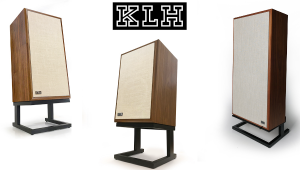The S+V Interview: Mass Effect 3 Audio Lead Rob Blake

The Reapers are upon us. Mass Effect 3 is out next Tuesday, and with it Commander Shepard's story is coming to a close. I took the opportunity to chat with the series' audio lead, Rob Blake about his team's work in defining the Mass Effect franchise. Over the course of his career he's worked on everything from feature films to Spongebob Squarepants games, but counts his efforts at developer BioWare as the most challenging gigs he's encountered.
"What we do here dwarfs anything I've done before," he told me.
We discussed what makes Mass Effect sound like Mass Effect, working with Clint Mansell, the origins of the end credits song from the first game, and the difference between a salarian's singing voice and speaking voice. And he dished on the sounds of elcor sex.
What's always stood out for me is how well-realized the audio has been in the Mass Effect series. The first game almost felt like a '70s sci-fi movie. People have said it sounds like John Carpenter did the soundtrack. It was very synthesizer-based; Mass Effect 2 was different and much more organic. What was the idea behind the shift in styles?
It was more of a global change from the overall game rather than a specific musical direction change. The second one was more dark and gritty and we brought in a lot of morally ambiguous characters such as The Illusive Man - who you never quite trusted. You were going to darker, seedier parts of the universe. We wanted the music to reflect that.
In the first Mass Effect - to the player, Shepard and humanity as a whole - we wanted it to have a clean and sterile feel to it, almost a sense of naivete in a way. The characters were almost all humans, it was like a journey of discovery to them; they were still figuring out who they were in the universe. The music was used to reinforce that.
In the second one, things got a little bit darker. The threat of the Reapers was a little more understated in a way, and so that was reflected in the musical changes.
The soundtrack to Mass Effect 2 spanned several different releases; the first was just one. Can we expect something similar with Mass Effect 3's soundtrack in terms of multiple albums?
The split releases for Mass Effect 2 were due to DLC (additional downloadable content) releases. After the game came out, we did some interesting stuff and we had new music for each one. We tried out some new things. They were released to coincide with that. We haven't announced our DLC plan for Mass Effect 3, but I'm working on the soundtrack right now and it's going really well. I have all that I need. [Laughs]
I was thinking in terms of how Mass Effect 2 had "Atmospheric," "Combat" as well as the main soundtrack.
The "Atmospheric" and "Combat" soundtracks came out after the main one; it was important to get that stuff out. We had a lot of material for Mass Effect 2 and we had a good design for it as well. We changed the audio systems between Mass Effect and Mass Effect 2 so we had a lot more flexibility with the music system. So, we made a lot more different elements that mixed together as you played through. As enemies would fade in and out, the music would switch between these different layers. As a function of that, we had a lot more content to play with.
Clint Mansell scored Mass Effect 3. He's known for simultaneously beautiful and melancholy scores. He's done a lot of work with Darron Aronofsky; he scored Requiem for a Dream, The Wrestler, and Black Swan. Was he an obvious choice to score Mass Effect 3 based on his repertoire and tone?
After we finished Mass Effect 2, (project director) Casey Hudson and myself sat down and we talked for a long period of time about what we wanted to do musically. We discussed how the third game was going to be different in some ways and what we were going to do with the musical narrative. One of the key things we wanted to do was focus on the emotional connection between the different characters. Really, because of the large-scale galactic war that's going on all around you, sometimes that can be a little too much to take in. We wanted to focus on Shepard's connection with the individuals and the relationships he or she has built with those people. It became important for us to make sure that was something we musically hit.
We talked about composers and people we respected and the sort of music we thought captured the emotional resonances. I'd been listening to a lot of Clint Mansell's work at the time, I'm a big fan of his previous scores. We got talking to his people and we had a brief chat with him. He just talked about music and composition in ways that other composers we'd spoken to hadn't; it was an interesting perspective he had on composition.
That started the relationship with him. We got some amazing pieces from him and with him, we helped build the musical backbone to the game. It's not just Clint Mansell we've been working with; we have four other composers as well who are all Mass Effect veterans: Chris Lennertz, Sascha Dikiciyan and Cris Velasco worked on the Mass Effect DLC, and Sam Hulick did the first Mass Effect. The soundtrack was pretty evenly split between everyone.
There's a real range of content there and it was my and Casey's job to ensure the overall musical narrative had a good flow to it and captured those emotional moments we have. We're really happy the way the soundtrack went. Out of the three games, it's certainly my favorite; it has some awesome stuff in it.
After I finished the first Mass Effect, the song that played over the credits, "M4 Part Two," really struck me. It jumps out, it feels like it shouldn't belong with the rest of the score because it's a vocal track - but it fits right in. How did it come about?
I didn't work on the first score, but I can give you a bit of info on that. I've been living Mass Effect for the last four years! [laughs] I know a fair bit about the history of Mass Effect despite not being around at the time.
The credits pieces have always been a big focus for us. We spend a lot of time thinking of how to wrap the beginnings and the ends up for each of our products. We want to make sure we set the scene right and in a satisfying way for the player. With each of our games, we think about credits music as well, it's not an arbitrary decision for us; there's a lot of effort in picking the right pieces. That piece came from a lot of discussions. Faunts - the band that wrote that song - is actually an Edmonton band, from where BioWare is headquartered. It's great we could keep it local.
- Log in or register to post comments






























































